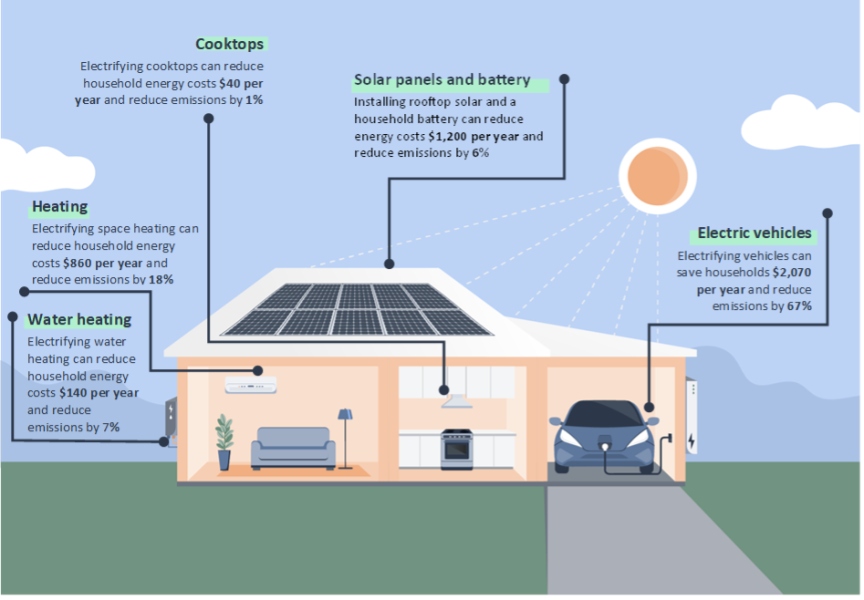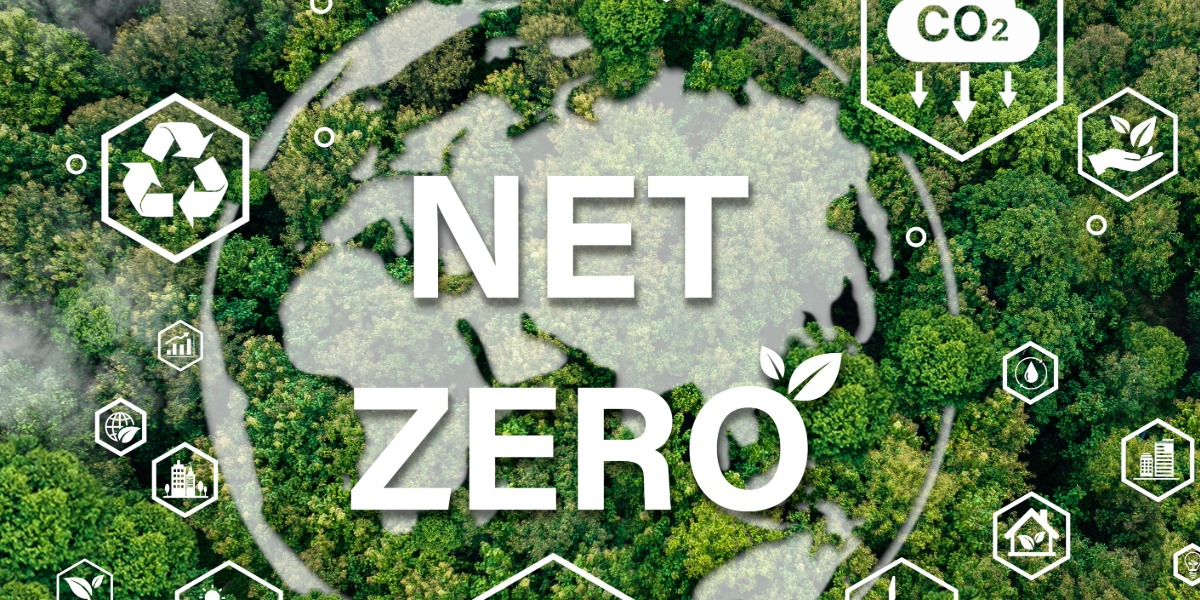Last week while reading about the Government’s new carbon targets I came to the quite shocking realisation that I no longer support the goal of Net Zero.
Hang on a sec, don’t go thinking that I’ve been converted by the unhinged rantings of our erstwhile local member on this topic. I absolutely have not, and I think Barnaby Joyce’s performance on all things climate change and renewable energy is intentionally deceptive and manipulative for political gain, and fundamentally unworthy of the New England.
But a little voice in the back of my head has been saying for some time that this maths doesn’t add up.
I think it started when I had a very short stint working for the Meat & Livestock Australia (MLA). At the time, they were spending bucketloads of producers money on their stated goal to make red meat production carbon neutral by 2030. It was a load of unmitigated BS, and didn’t have much more to it than some seaweed feed development, wasting more producers money buying carbon offsets, and a whole lot of marketing puffery. (This is not news to them, I told them what I thought of that project fairly bluntly in my exit interview.) Fortunately the goal was dropped earlier this year.
While I have been thinking about Climate Change and what we can do about it for longer than most – as you might expect from someone who held a leadership role in the Australian Democrats over 15 years ago – it was that experience with MLA that really hardened my view that the words are meaningless, and you have to look at the numbers and the science.
The numbers and the science is a variable feast with a lot of room to move. Literally. CSIRO scientists found in 2023 that in some years Australia is already at New Zero – or better – and some years it is not. The subject matter in the full paper was a bit out of my expertise level, but it seemed like the difference was how big the bushfire season is that particular year.
Which of course means that if we pick a year other than 2005 as our baseline, then we might already be at our Net Zero goal, or pick another year and we’re way off.
Looking at the Government’s announcement last week, let’s skip past the puffery, and look at the modelling.
On the one hand, this is fairly standard government modelling. Multiple scenarios, assumptions on assumptions, not much more than a pretty good guess. (If that scares you, let me tell you that every political decision involving money from the local government rates you pay through to what will and won’t be covered by medicare is based on the same ‘best guess’ maths.)
On the other hand, the baseline assumptions for this stuff lacks detail and certainty and seem to be more about ideology than science. It’s assumptions on assumptions on assumptions on theories on ideas.
Voodoo carbon accounting.
And like the findings of the CSIRO led scientists in 2023, if we just pick a different set of baseline assumptions, all of the Net Zero carbon accounting modelling can be much better, or much worse. Take your pick as suits your political argument.
I don’t want to discredit all of this announcement – some of this work is really good. It’s great that they’ve started to drill down into sectors, so they can start to chip away at the really problematic bits without throwing the proverbial bath out with the bath water. The ag sector plan is as silly and empty as the MLA’s now abandoned target, but the transport and built environment plans are a really solid start.
However, I thought, if the underlying maths is bogus, what does it matter?
And then – this was the bit that was shocking – I realised that it doesn’t matter.
My Dad once told me that the fundamental challenge of farming was producing a higher yield each year, while reducing your inputs, and not damaging your core asset (land and water). I don’t know why that piece of wisdom has stuck with me, but it is the fundamental frame I apply to everything. Extrapolated to the national level, the government needs to increase yield (revenue and productivity), while reducing inputs (grants and welfare), and protecting its core asset (land, water, infrastructure and people). It’s the same problem, just a different scale.
So what do we as a nation need to be doing to increase yield and decrease inputs while protecting the nation’s core assets?
Well we need to be:
- Using energy more efficiently and wisely and transitioning as fast as we can to sustainable and renewable energy sources.
- Decentralising the energy grid with more community generated energy and localised battery storage – and both the home, business, and community level – both reducing cost and increasing reliability of power supply, particularly in regional areas
- Making our homes of other buildings more resilient and efficient, both in terms of reducing energy consumption and being much more resilient to weather
- Transitioning away from foreign produced petrol and diesel to locally produced biofuels and EV powered vehicles and anything else that reduces the demand for transportable fuel sources
- Investing in research to get major heavy industry off fossil fuels and on to sustainable energy sources so they can plan for a long term future
- Transitioning to smart industries that will be resilient and sustainable long term
So basically all the things the net zero plan calls for (except for carbon capture and storage, which I’ve thought was nonsense, potentially damaging, and a waste of money for a long time).
We need to be doing that transition aggressively and at pace, because this is the race for the future of our world. If we are going to survive as a leading prosperous nation, and continue to be the envy of many others, then we need to be in the race to get to the most sustainable and efficient everything, reducing our inputs and increasing our yield. (And I don’t have any issue selling more expensive and less efficient sources of energy to lesser nations who are losing the race.)
The benefits of doing all these things are exactly what people are screaming for: decreased cost of living, stronger economy, better services, more certainty in business and a healthier environment. As it says in the Government’s plans and Treasury modelling – most of these things are better for reasons other than emissions reductions.

So, if you take the constructed argument about the race to Net Zero away, we still need to do all these things. We should be doing them faster and more completely than the so called “ambitious” targets call for.
We should have solar, and batteries, and water tanks, and better insulation, and all the things on every school, hospital, government building and community facility, as well as our homes. We should be building new communities public and electrified transport ready, not putting in a few bus stops as an afterthought. We should be developing biofuel industries and new technology and innovations that reduces reliance on the grid or foreign fuels, reduces landfill or pollution, or otherwise makes things more efficient and sustainable. And every business should be thinking about what they need to do today to be the leader of their industry tomorrow, and going for it.
That’s what “ambitious” looks like.
This thought then led me to the conclusion that I no longer support the goal of Net Zero, because it is a political distraction.
The debate about Net Zero is actually hampering our economic and environmental progress, and if we shut up about it and get on with doing all these things we need to be doing anyway, then we’d get there faster.
I’m sure many will disagree. But at a time when the Coalition are obsessed with themselves and whether or not Albanese has met Trump, and the Government are obsessed with themselves and claiming credit for everything but actually doing nothing, taking one more political distraction off the table can only be a good thing.
Barnaby will just have to find something else to rant about.

RK (Kath) Crosby is the CEO of research and strategy company KORE CSR, former strategist for the Australian Democrats, and a well known migraine advocate. She is also the Publisher of New England Times and North Coast Times.
Got something on your mind? Go on then, engage. Submit your opinion piece, letter to the editor, or Quick Word now.


I sort of agree with you in that yes net zero is a load of BS and that the science can be manipulate to say whatever the powers to be need us to hear. That has been proven many times in the past from meat is bad for us to something else is bad for us then a few years later oh our mistake it actually good for us in moderation. My beef is with all the people living in our big cities crying we have to do something about climate change, blaming the cows and farmers for it but doing very little. More and more farming communities are looking at sustainability agriculture and have been doing so for a long time cause if they don’t, like you said their outputs decrease, their inputs increase and their livelihood is not protected so they understand the benefits of looking after our environment probably more than most. But the urbanities, the ones who have every light on in their houses, aircon running 24/7, multiple cars to drive just down the road and a food waste bill that would feed millions, they need to stop whinging and take action! Stop putting ugly winsol farms on our farm land and forests and do something more than blame everyone else.
A good article Kath,
Thought provoking & the journey will not be easy but in reality we MUST stop using fossil fuels, look after our land, plant more vegetation & be honest with ourselves.
Keep up the good work!!!